VISIT TO VIMHANS, PSYCHOLOGY STUDENTS OF CLASS 12.
Visit to VIMHANS, Psychology students of class 12.
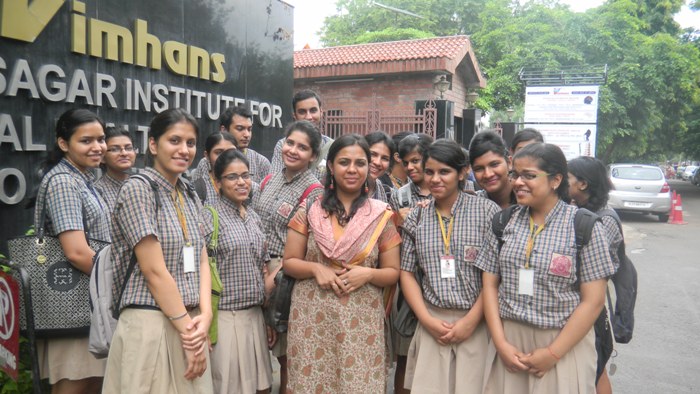
Afew small steps into Vidyasagar Institute of Mental Health and Neuroscience (VIMHANS) during the educational trip on August 7, 2012turned out to be a giant leap for the Psychology students in terms of understanding and developing a greater appreciation for the subject.Class 12 was there last year too, but this time, the group had swelled, being a larger batch reflecting an increasing interest that this behavioural science is generating amongst the young student community.
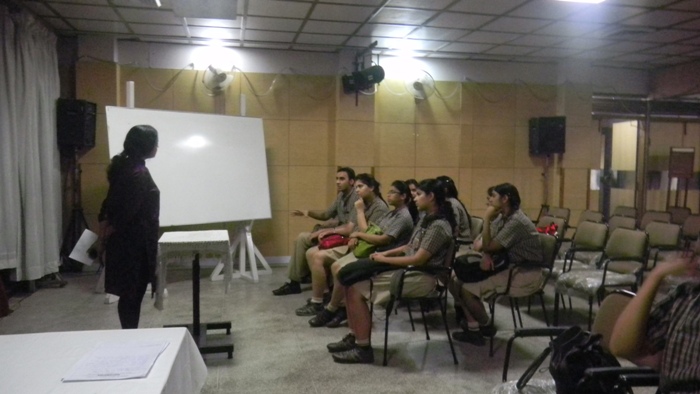
Ms. Harpreet Kaur, Ms. Monalisa Pandit and Ms. Simrita Choudhary from their faculty were in attendance to enlighten us. Packed with the customary introductory welcome, the program included presentations, videos, interactive sessions and hypno-therapy. The highlight was the visit to the wards where Psychology and it's advanced learning, amongst other medical interventions, are put to use to heal those who are wired differently in the brain.
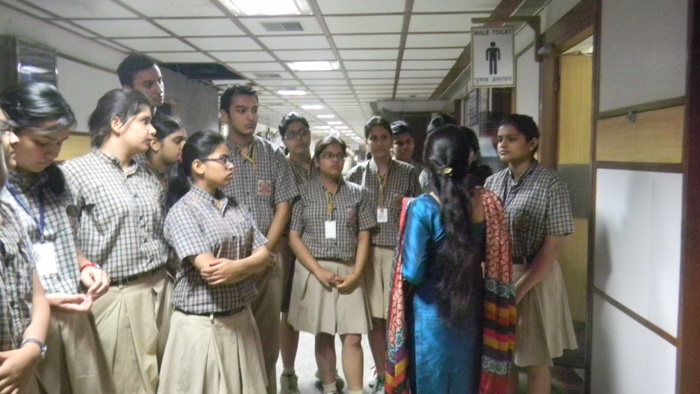
We know that the mental state defines action just as cause defines effect, and this visit essentially covered various disorders in a fair amount of detail alongwith their corresponding therapies. Disorders such as anxiety, depression, panic disorders, bipolar-disorders, schizophrenia, phobia and development disorders in children added dramatically to the perspectives on them odeveloped in the classroom.
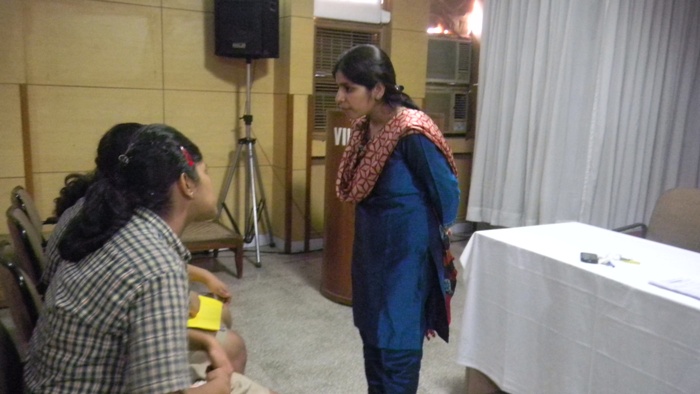
For those interested,i it would help to correlate some of these conditions that have been classically showcased on the silver screen over the years. Producers of films like My Name is Khan (Asperger Syndrome), 15 Park Avenue and The Beautiful Mind (Schizophrenia), Kartik calling Kartik, (Dissociative Identity Disorder), Tarey Zameen Par (Dyslexia) have attempted wonderfully to portray these real issues to get the general public to sensitise with the challenges of the mind.
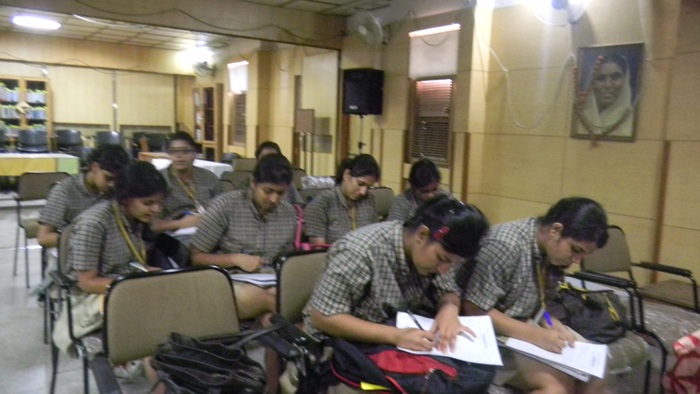
In one of the videos that was played out, we observed that not only is it stressful for those with a medical condition, but also that their family members too are impacted and inevitably suffer trauma. The key to neutralise the impact is to first accept, then identify the challenge in detail and follow up with treatment, which can be considerably prolonged in many cases a generic process that is much recommended for improving any adverse state.
As filed by Ms. Sukhmeen Cheema, Psychology teacher and Sanjana Sawhney, class 12C.

















